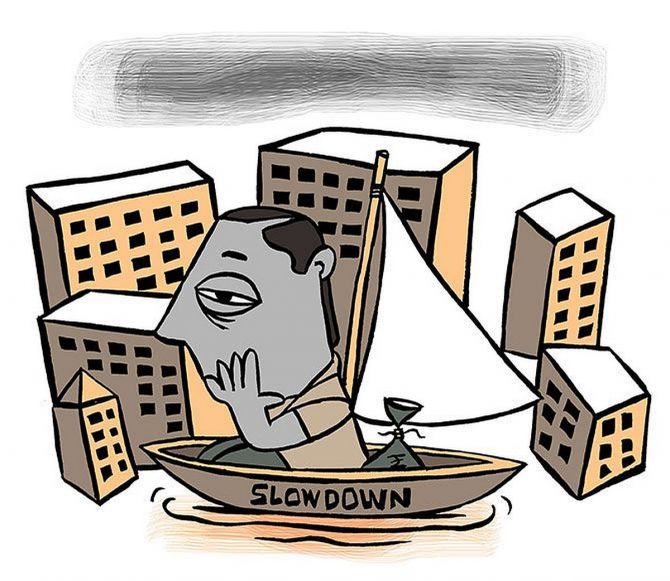Despite the revival in sales of essential goods, GDP numbers show that the overall private consumption expenditure declined by 2.4 per cent in Q3.

India’s Rs 4.5-trillion fast-moving consumer goods (FMCG) sector was one of the first to bounce back from the lockdown induced blues, reporting a year-on-year (YoY) growth in the October-December quarter last year.
That said, the overall consumption figures continue to remain depressed.
The FMCG market, which includes daily consumables like branded atta, hand sanitizers, edible oils, shampoos, razors, and so on, recorded 7.3 per cent value growth during the period, while the smartphone market grew by 21 per cent.
Manufacturers claim that consumer durable sales, too, picked up due to last year’s festive buying, and grew by low double digits.
However, the latest GDP numbers show that the overall private consumption expenditure declined by 2.4 per cent in the last quarter — although the rate of decline has come down significantly since April-June’20 (26 per cent) and July-September’20 (11 per cent).
Experts say despite the revival in the sales of essential goods, several sectors are continuing to drag private consumption down. Take real estate.
In spite of 12 per cent growth in the supply of new homes, residential property sales fell by 27 per cent YoY during October-December, market research firm PropTiger said.
Data from NITI Aayog and Bain & Company suggest that the residential segment accounts for 85 per cent of India’s Rs 8.7 trillion real estate market.
Consumer-oriented sectors like transportation, travel and tourism, leisure, fashion and apparels, and so on, also continue to remain severely impacted.
An ICRA report states that though domestic air passenger traffic improved in December 2020, it remained 45 per cent lower YoY.
Overall, consumers spent less during the quarter, as airlines deployed only 67 per cent of their capacity in December last year, which was higher than the 59 per cent capacity in November.
The situation was no better for India’s Rs 14-trillion travel and tourism sector that contributes close to 7 per cent of the country’s GDP.
During the December quarter, the number of foreign tourists continued to plummet and domestic travellers avoided unnecessary trips.
The Federation of Associations in Indian Tourism and Hospitality, an industry body of 10 national associations in the hotels, travel and tourism sector, estimates that the revenue contraction in the industry was over 15 per cent during the latter part of 2020.
Product segments like apparel, accessories, shoes and other non-essential categories are also subdued.
According to Rajat Wahi, partner, Deloitte India, retail footfall has been around 75 per cent, which has affected certain discretionary segments.
“While some of that has been recovered through online sales, the overall (consumer goods) business continues to be behind pre-Covid levels,” said Wahi.
Similarly, with most movie theatres operating at low capacities after the lockdown was lifted, trade analysts say that the loss of revenue has been significant.
In 2019, Rs 11,500 crore, or 60 per cent of the film industry’s Rs 19,000-crore revenue came from the theatres.
The revenues during the October-December festive quarter usually make up for 35 per cent of the total box office pie for the year. But in 2020, at least 80 per cent of that was wiped out.
In other words, consumers spent thousands of crores less for movie outings that also include spends on food and beverages.
While some part of this may have been diverted towards online streaming platform subscriptions, it clearly failed to match the overall loss in revenue.
Pinakiranjan Mishra, consumer leader at EY India, said despite the 7.3 per cent growth in the FMCG market, the underlying trends may not be visible from the organised industry numbers.
“Larger FMCG companies had the means to deal with the Covid-19 disruptions much better and have got a share of the business of the unorganised players.
"They were also able to access the market better by leveraging digital platforms to reach out to trade as well as consumers,” he said.












 © 2025
© 2025